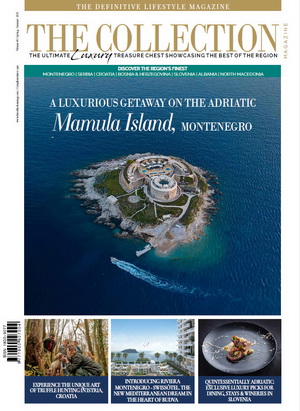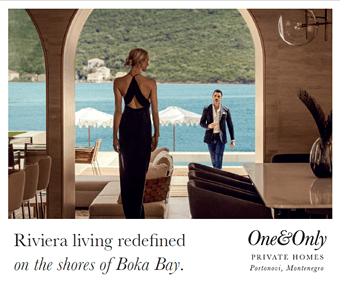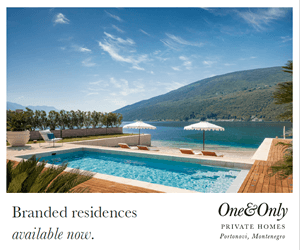Hotel “Bristol”, the old shine of the new era in Belgrade
In those old, romantic times of the beginning of the 20th century, the time of elegant ladies and classy gentlemen, Savamala, the legendary Belgrade’s bohemian quarter, became a shell in the heart of which a truly artistic, avant-garde pearl was located. Due to its unsurpassed shine and inviolable beauty, hotel “Bristol” became the herald of the architectural transformation of Belgrade into a modern European metropolis.
Since 1912 when, thanks to the ingenious idea of the famous Serbian architect Nikola Nestorovic, it was first presented in its full shine to the Belgrade public, hotel “Bristol” has gained the status of one of the most elegant and glamorous places in the Serbian capital. Today, after more than a century of existence, this iconic hotel, thanks to the efforts of Belgrade Waterfront, is experiencing a renaissance and is preparing to shine with its old glory while reviving the spirit of the bygone romantic era.
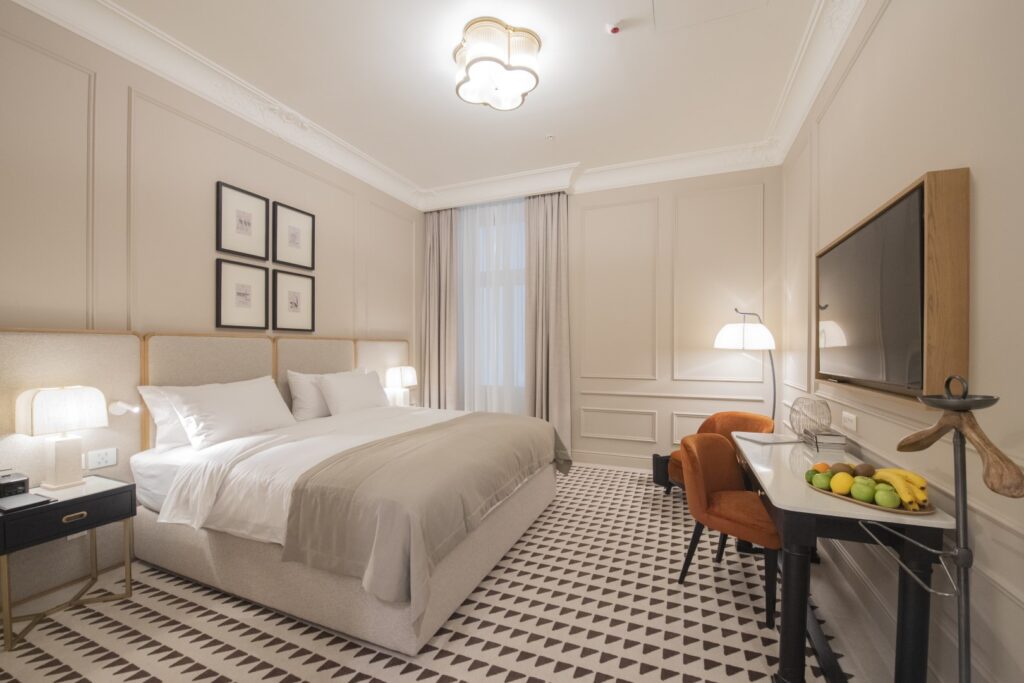
Interior of the apartments will be as impressive as the exterior of the hotel. Photo Stella Production
The diligent hands of 16 artists restore “Bristol”
After restoring the façade of the magnificent building of the Belgrade Cooperative and renovating Sava Square while preserving all its historical layers, Belgrade Waterfront paid special attention to the restoration of the “Bristol”, which is considered an anthological example of contemporary Serbian architecture and a symbol of the mature phase of Belgrade Art Nouveau. As it is a unique building of inestimable artistic and cultural value for Serbia, the main goal is to preserve the original façade and, to the extent possible, return it to its original state.
The restoration of the façade takes place in cooperation with the Belgrade City Institute for the Protection of Cultural Monuments, under whose protection it has been since 1987. In addition to the 16 graduate sculptors and painters who are dedicatedly working on the restoration of the façade of Nestorovic’s piece of art, Belgrade Waterfront is also proud of its cooperation with Miroljub Stamenkovic, a former professor at the Department of Applied Sculpture at the Faculty of Applied Arts and one of the greatest Serbian experts in this field. His expertise is a guarantee that “Bristol” will once again become a recognizable symbol of Belgrade.
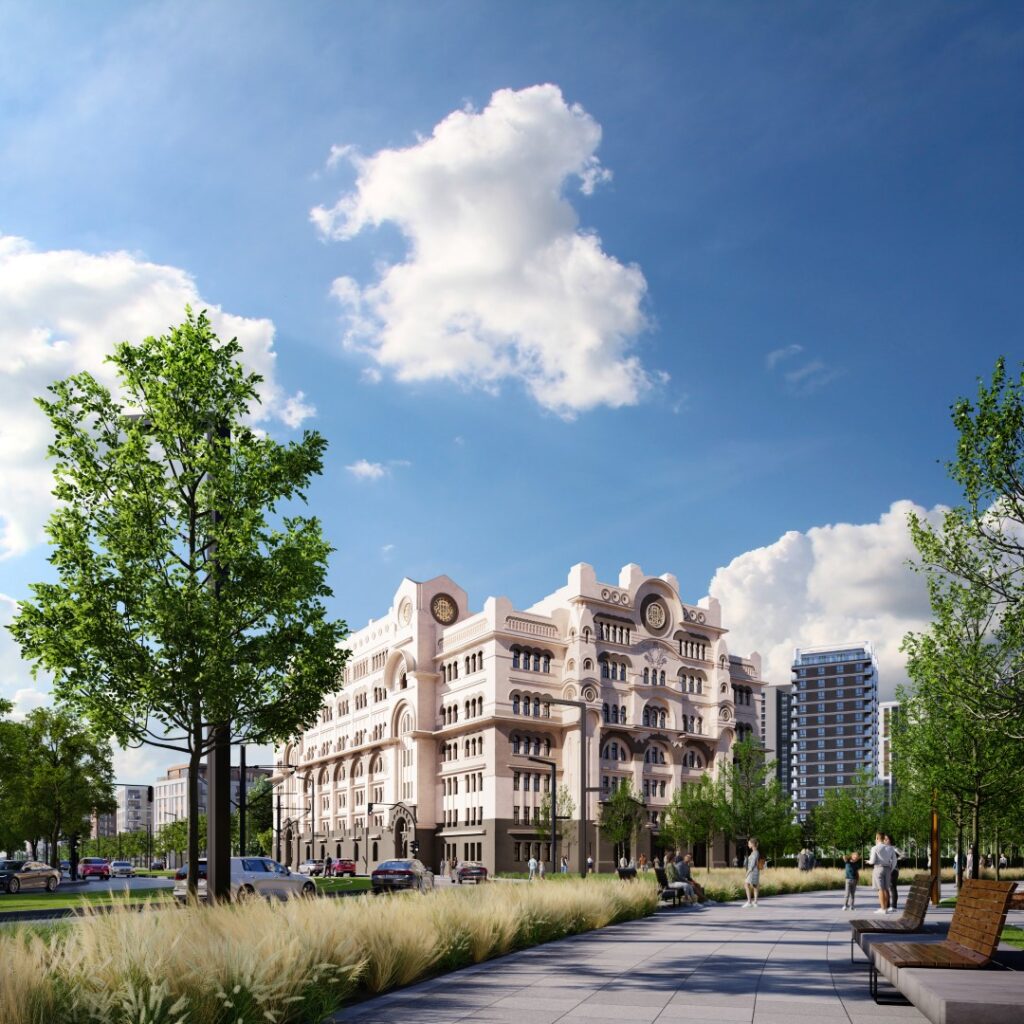
The Old Post Ofiice will be a home for theatre, library and children’s museum
Preserved elements of ornamental façade plastic on “Bristol” are used as molds for making new ones, which are then mounted on the façade. These works are carried out by specialized sculpture and painting experts. As many as three out of only five of those local experts are currently working on the restoration of the façade of the architectural pearl of Savamala. This fact illustrates how much attention was paid to the restoration work in order to restore “Bristol” to its former glory.
In addition to these highly specialized works, the interior of the hotel will also get its new look. Reproductions of original decorative elements, which are a fusion of French Art Nouveau and Eastern European motifs, will follow guests through the interior as well – through the apartments and public areas of the hotel.
“Bristol” is one of only a few Belgrade buildings built in the early 20th century in the style of academicism and Art Deco. This architectural expression will get its modern interpretation through the current reconstruction, making “Bristol” what it once was – a gathering place of the fashionable world.
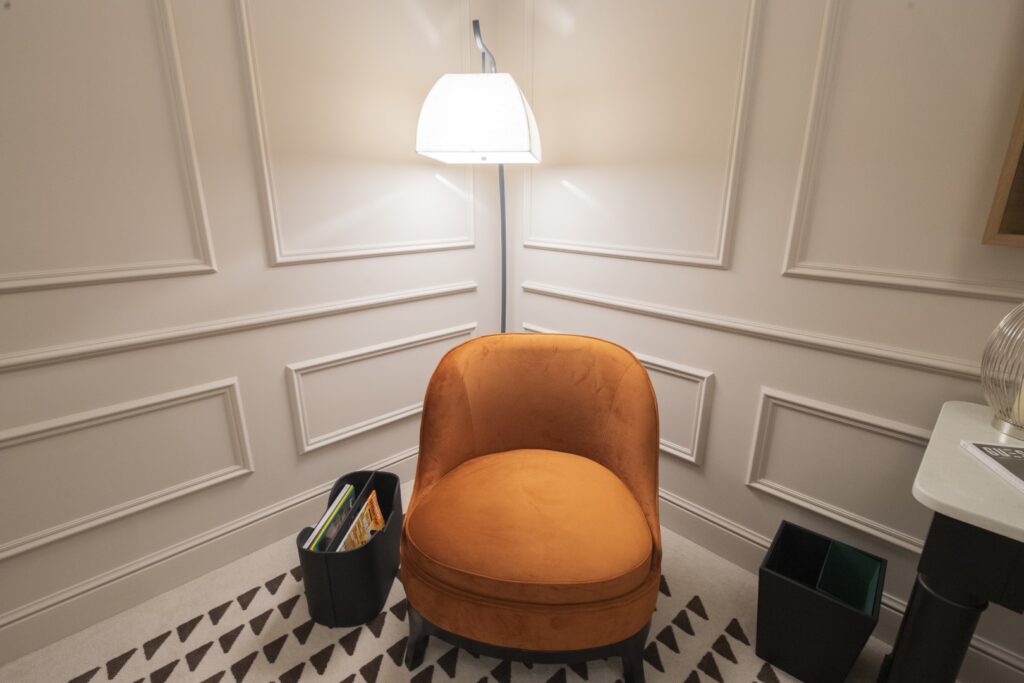
Revival of Belgrade’s glamour
Throughout its long and captivating history, “Bristol” attracted many renowned people and celebrities who did not remain indifferent to its glamour, including financiers and bankers John Rockefeller Jr. and David Rockefeller, lifelong president of SFRY Josip Broz Tito, chess grandmaster Garry Kasparov, Belgrade’s iconic bohemian and writer Momo Kapor, as well as showbiz performers with stunning vocals like Predrag Cune Gojkovic and Meri Cetinic.
The architectural masterpiece of Savamala started to come to life as soon as the first pieces of façade decoration were cleaned and restored, and once it opens its doors, there is no doubt that the unique glamour of Savamala will return together with visitors. In other words, “Bristol” will soon again mark its place on the map of the most fashionable places in Belgrade, and, thanks to its extensive offerings it will attract numerous famous domestic and international figures, exactly as it did before.
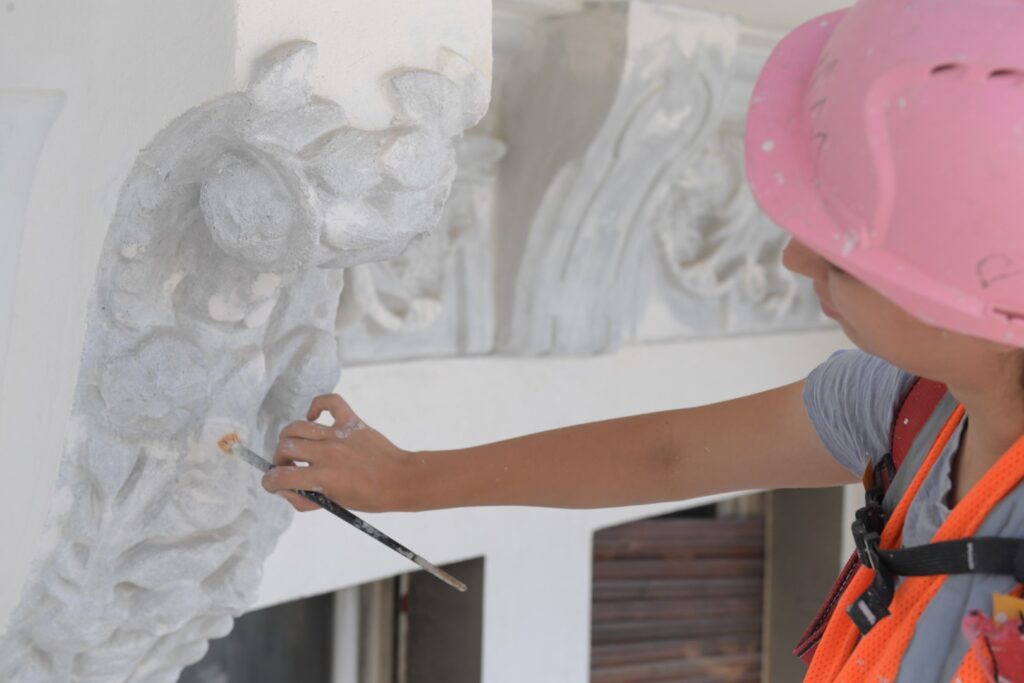
Specialized experts carry out the restauration of the facade. Photo Stella Production
Its exclusive location within Belgrade Waterfront, right next to the Bristol Park and in the vicinity of the Sava River, gives it an additional advantage over other hotels. As a result, guests will be able to indulge in the walk along Sava Promenada, which became a new pulsating point of the city’s main events, to enjoy a spectacular view of the Serbian capital from the observation deck on top of Kula Belgrade or to feel all the charms of the Galerija, the largest shopping, entertainment and dining destination in the region of Southeastern Europe.
Reconstruction of “Serbian Gaudí” pride
In contrast to “Bristol”, which was spared war destruction during its more than 100 years of existence, the Old Post Office on Sava Square had a much more turbulent history. Built according to the ideas of another famous architect, Momir Korunovic, in the contemporary Serbian-Byzantine style in 1929, this building suffered great damage during the Second World War, after which it was restored in the spirit of the then-prevailing socialist realism.
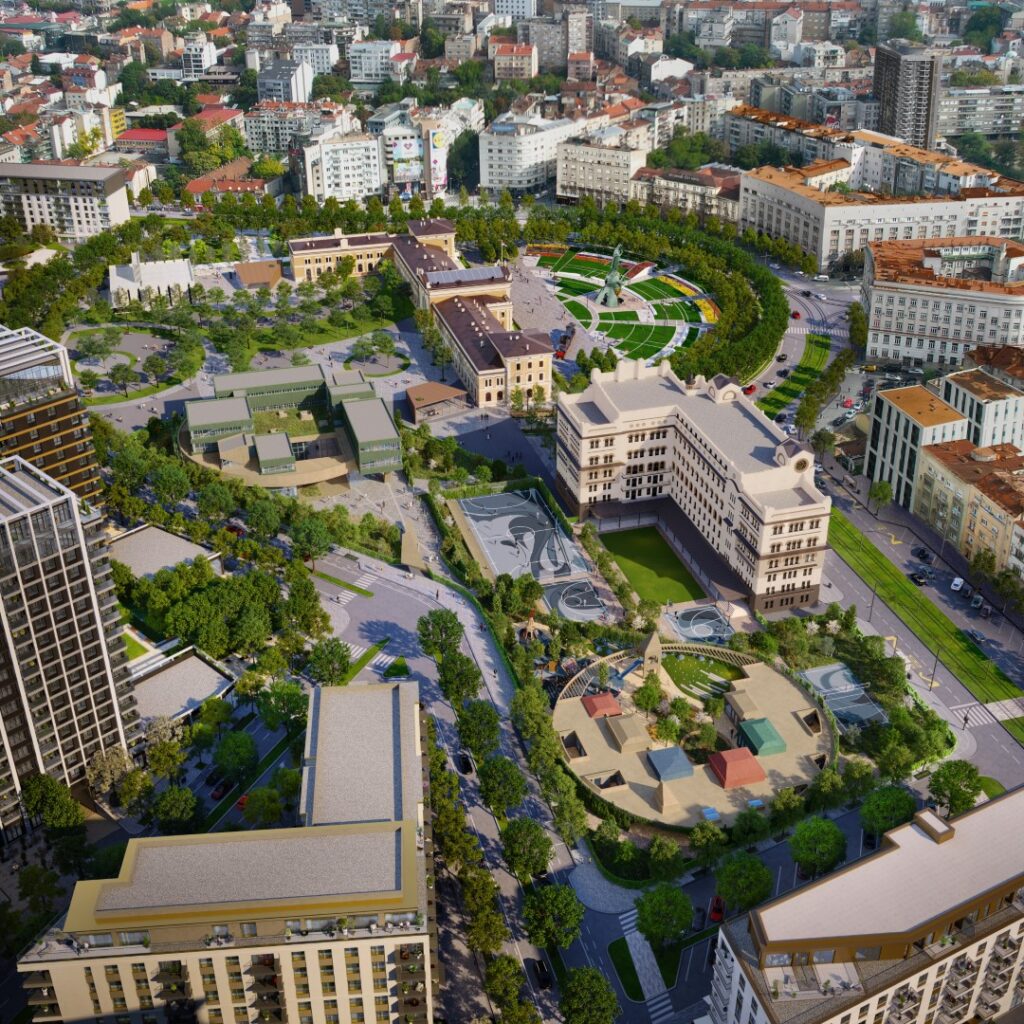
Reconstructed Sava Square with bilingual public school and kindergarten in the hinterland
Continuing with the dedicated work on the restoration of the rich architectural heritage of the Serbian capital, Belgrade Waterfront will also reconstruct this forgotten masterpiece of the “Serbian Gaudí”. One of the most beautiful buildings of pre-war Belgrade will be restored to its original appearance, with a luxurious façade and in identical proportions that it had until 1944.
After reconstruction, a theatre, a library, and an interactive children’s museum will be housed in the Old Post Office building. A restaurant and a cafe will be located on the top floor.
Apart from the reconstruction of another pride of Serbian architecture, the Main Railway Station building will be converted into a Historical Museum of Serbia. In the hinterland of Sava Square, an educational campus will be formed, with a state bilingual school and a kindergarten, connecting the capital’s past and future in the most beautiful way.



